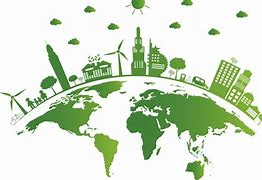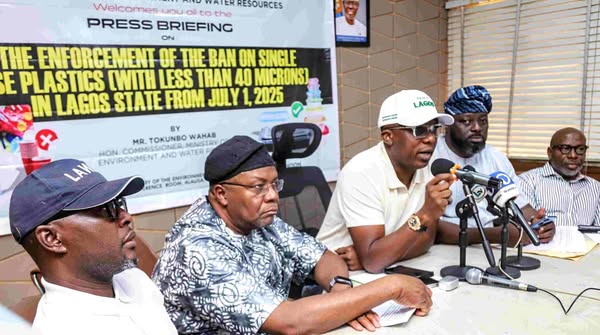We are in love with terms. Nothing wrong with them. They kind of help in explaining large complex concepts to the initiated without recourse to long, winding sentences.
But to the uninitiated, it quickly becomes one of those terms thrown out there.
By 2050, it is projected that Africa would be home to about a quarter of the world population. And this places Africa squarely in the middle of the net zero paradigm.
Unfortunately, there’s so much wrong with Africa’s current net-zero pathway. And achieving even 60percent of the target by 2050 might just be a pipe dream.
According to the 2021 Net Zero report by the International Energy Agency (IEA), even if all the existing climate pledges are achieved, they won’t be enough to reduce global energy-related CO2 emissions to net zero by 2050. Which means limiting the global temperature rise to 1.5C might be almost impossible. (IEA, 2021)
This is not good news for Africa.
And for Nigeria, it goes a bit beyond that. With an exploding population and increasing need for major infrastructure and systemic changes; and with Nigeria undergoing a system and orientation re-calibration, it means most heavy industrial activities would have to be curtailed or switch to renewables as recommended by the IEA.
There are significant factors affecting Nigeria, indeed Africa’s drive towards achieving Net Zero.
The Energy Security Challenge
Energy Security is basically the nexus between national security and securing available natural resources for energy consumption.
Nigeria has one of the least energy generation and distribution systems in the world, averaging an estimated 8 hours of electricity daily; with an energy industry built on fossil fuels and hydropower plants.
To change the narrative, the country, led by a very dynamic private sector has focused in recent times on solar energy, mostly off grid and solar home systems. While this may be suitable for stand-alone and unserved communities, the key challenge is adopting Solar Energy for Industrial Usage.
Rwanda has achieved a seemingly impossible goal – which is powering the country mostly with Renewables. That remains the model for power-poor countries. But is such a feat more achievable for a service driven economy rather than a production focused economy?
Countries like South Africa, Egypt, Tunisia, Ghana seems to have cracked the energy security code; but there still remain major challenges of sustainability and increasing generation and distribution problems.
It is indeed possible to use Solar for industrial operations but is it feasible? Most definitely no. Unless and until Solar Energy can be harnessed to provide grid scale power at affordable rates, it will remain the poor man’s alternative.
However, the key challenge is achieving baseload. An economy thrives more when it can power industrial loads. Once that can be achieved to power heavy machinery, then there would be an organic transition to such technology.
Political Will
Beyond any other factor, as always in Africa, political will remains the major determinant for the implementation of any strategy or policy. Its not just about announcing policies nor ratifying global agreements but rather the will to actually implement provisions of such policies and treaties.
Despite their renewable energy potential, South Africa still remains one of the largest consumers of coal. And while global finance appears to be slanted towards carbon free technologies, more and more fossil power plants are still being constructed and even planned, disrupting and causing degradation. A case in point is the East Africa Crude Oil Pipeline (EACOP).
Social Inequity:
While awareness of climate change and its negative impacts is rising, it is nowhere near the level of realistic public understanding and acceptance. Flooding, erosion, erratic weather patterns and inconstant energy has been on for decades and the African people are more or less almost resigned to it.
It is not for nothing that Nigeria is the power generator capital of the world!
Beyond the cities and urban centers, the people are still very much used to their traditional ways of existence. Chopping trees for firewood for cooking, using local streams as multipurpose use: for bathing, drinking and washing; illegal logging, burning waste, open defecation, among others.
All these are fueled by cultural norms and mostly by the lack of adequate financial resources to obtain sustainable alternatives.
Possible Measures
In Africa within the last few months there have been several projects and campaigns geared towards the net zero drive.
In Nigeria, in February 2023, a group of civil society organizations undertook a survey and index which culminated in identifying 11 key measures to attain Net Zero. This was done through analysis of the various treaties and strategy documents related to Nigeria.
This was soon after the establishment of the national council on climate change, a bold step by Nigeria in taking charge of her decarbonization drive.
The South African Department of Environment, Forestry and Fisheries (DFFE) has also identified three phases for net zero by 2050. Several other initiatives and programs have been identified, established and are being implemented today.
The measures range from a phased approach to actual practical steps by government, municipalities, corporate organizations and individuals. These measures focus on utilizing renewable energy, scaling up e-mobility access, climate finance interventions, circular economy, investing in the blue economy, the perennial mainstay, tree planting, waste management and reduction of fossil fuel in all areas.
Conclusion
However, the consensus is that until these measures or implementing bodies show that these measures actually impact positively on the bottom-line, there would still remain a dogged front against some of these measures.
And not just due to profit, a critical awareness especially in communities where such measures go against decades of traditional and cultural norms is very essential.
Not least of all as stated earlier is Political Will. Body language and ambiguity in policy statements need to be totally eradicated for there to be appreciable net zero impact. Public agencies need to be on the same page, and not each agency implementing policies according to the whims of their top people.
Indeed, Africa is undergoing a transition. But that transition has to be forged for Africa, facing Africa’s realities and needs.







